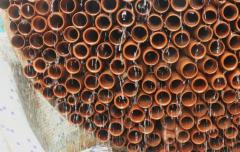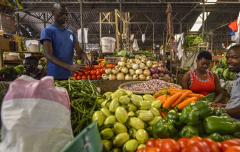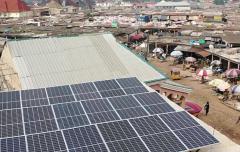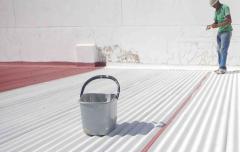“Investing in energy efficient products and developing climate-friendly products are key priority areas to help meet 2030 targets”: Partner Spotlight interview with Hakan Bulgurlu, CEO of Arçelik
In an interview with Hakan Bulgurlu, CEO at Arçelik, we discuss their work on SDG 7, the work they are doing on energy efficiency as part of Sustainable Energy for All’s energy efficiency hub and how business can support the SDGs.
What is Arçelik’s mission?
Arçelik continues full blast to invest in energy efficient products and develop climate-friendly products that use fewer resources that everyone can access, in accordance with the UN 2030 Sustainable Development Goals. Our mission is to help create sustainable living by taking innovative steps. We strive to create value for the society by focusing on circular economy solutions with our leading water and energy-efficient products, as well as our projects on energy and water use in production and waste management. Together, with our energy efficient and environmentally-friendly manufacturing practices, our aim is to be a carbon neutral company in production by 2025.
How does the Arçelik support Sustainable Development Goal 7 (SDG7)?
We think that sustainability is not just the responsibility of governments or corporations. A better, more sustainable future requires everyone to contribute. We strongly believe in collaboration and cooperation across all stakeholders. We are committed to act in accordance with the Sustainable Development Goals. Designing energy efficient products and making it affordable for the people are the pillars of our corporate sustainability strategy. We constantly increase our energy supply from renewable resources and set ambitious targets. For example:
- We decreased energy consumption per product by 40.7% in 2017 compared with 2010. Our goal is to increase this figure to 45% by 2020.
- We aim to establish renewable power plants with a total capacity of six megawatts by the end of 2020.
What do you see as priority areas of SDG7 to help us meet 2030 targets?
Emerging economies can reduce their annual carbon dioxide emissions by 570 million tons until 2030 by using climate-friendly refrigerators and air conditioners. This means that these economies would reduce annual electricity demand for air conditioners by 30% and refrigerator by 60%. Investing in energy efficient products, and developing climate-friendly products that use less resources that everyone can access are key priority areas to help meet 2030 targets.
What does your partnership with SEforALL focus on?
The partnership between Arçelik and SEforALL aims to highlight the active participation of our company in developing energy efficiency standards and accelerating the objectives of SEforALL. We aim to work together to help deliver SEforALL’s three core 2030 objectives – ensure universal access to modern energy services, double the global rate of improvement in energy efficiency and double the share of renewable energy in the global energy mix. To this end, we work together with nonprofit organizations and government agencies to support the formation of energy efficiency standards and regulations in home appliances in emerging markets where we operate.
2018 is a busy year for sustainable energy. What are the highlights for you and what else are you looking to?
We aim to continuously improve our environmental sustainability performance in line with our vision of “Respecting the World, Respected Worldwide.” For this purpose, the principle of “environmentally friendly approach throughout product lifecycle,” lies at the core of our responsible production approach.
We continue to develop new products and services in line with this target. One of our leading projects in the circular economy was our high-performance, innovative, and environment friendly washing machine and a washer-dryer tub produced by recycled PET bottles. This project has so far seen 12 million bottles recycled, and our aim for 2018 is reaching 25 million. Globally, an average household today uses approximately 3,353 kilowatt hours of energy per year, so the energy saved from the first phase of production of the recycled PET tub equates to the yearly energy consumption of approximately 1,700 households. By recycling these PET bottles, carbon dioxide emissions can be reduced by a total of 885 tons per year.
Another example is the development of an off-grid refrigerator that runs on solar power. We aim to expand the use of this product, especially in Africa where many regions do not have electricity supplies. Yet there are several hurdles to getting this low carbon solution to more off-grid households, including high taxes on specific components, high costs and few incentive schemes. Relatively low income levels in developing countries is another challenge.



